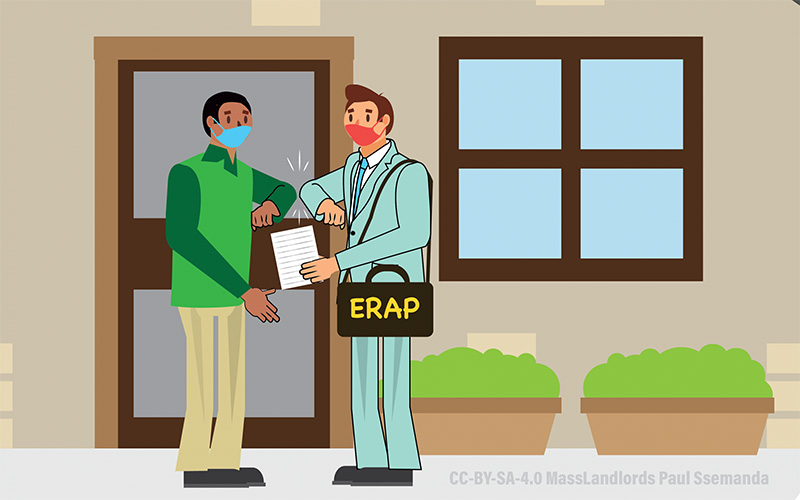DHCD: Tenants with Non-Responsive Landlords May Receive Direct Rental Assistance Payments
| . Posted in News - 0 Comments
By Kimberly Rau, MassLandlords writer
The state of Massachusetts is making changes to its Emergency Rental Assistance Program (ERAP) to remain in compliance with President Biden’s American Rescue Plan Act (ARPA). Notably, regional administering agencies (RAA) that are unable to get in contact with landlords may issue rental assistance payments directly to tenants, a requirement of the ARPA.

These changes are effective as of June 28, 2021, according to Ryan Ambrose, the policy development manager and legislative liaison at the state Department of Housing and Community Development (DHCD). On that date, tenants who have applied for rental assistance through ERAP may receive direct payments for arrears, security deposits and stipends if their landlord has not responded to contact attempts from the RAA.
Ambrose noted that both RAAs and rental assistance processing centers must attempt to pay the landlord first in all cases. Direct payments can only be made after one of the following happens:
- The landlord has not responded after seven days to a letter sent via certified U.S. mail with return receipt requested;
- The landlord has not responded to three phone, email or text messaging attempts over a period of five days; or
- The landlord confirms in writing that they are choosing not to participate in ERAP*.
At that point, the RAA must undertake a due diligence process before a direct payment can be issued to a tenant. The RAA must verify that the months of rent for which the tenant is requesting assistance have not previously been paid to the tenant or landlord. They must also check public records to confirm that the landlord listed on the assistance application is the owner of the property in question. Finally, they must meet with the tenant, either in person or virtually with cameras on, to verify the tenant’s identity, and review terms of funding, duties and responsibilities.
When the payment is issued to the tenant, the RAA will send a letter to both the tenant and the landlord via mail or email that includes the amount of assistance, rental address and intended use of the funds. The tenant has 30 days to remit payment to the landlord. If they do not, the landlord may report them to the RAA. The RAA will attempt to engage with both parties. If it can be confirmed the tenant has violated their terms of funding agreement, the case may be turned over to DHCD for investigation.
DHCD will be conducting periodic post-payment audits of direct tenant payments to check compliance. Tenants who are in violation of their agreement may face criminal charges.
*MassLandlords has been clear that landlords should not be refusing ERAP, or any other form of rental assistance. In fact, the attorney general has suggested this may be discriminatory; our position is that it is discriminatory. If your tenant is attempting to pay their rent through subsidies, you should be available to the appropriate agencies who may be looking to issue payment to you. If you are planning to be out of town, your tenants should still know how to reach you. If you will not be available via email, set up an away message with alternate methods of contact. Your business voicemail’s outgoing message should also state any changes in availability.




